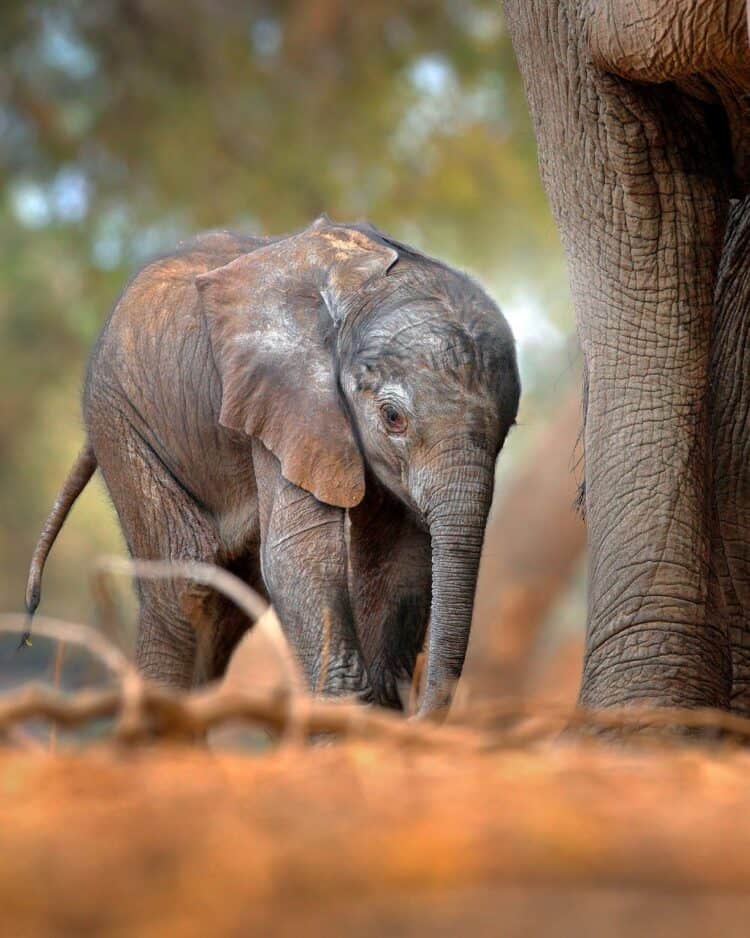“Hercules” the elephant is the new king of the jungle after the youngster drove off 14 lions earlier this month in Zambia.
Visitors to South Luangwa National Park came upon a pride of female lions attacking the elephant near the Norman Carr Safaris Chinzombo Camp, and they caught the attack on camera.
“Never have I seen anything like this,” Innocent, a Norman Carr safari guide, wrote with the YouTube video, which has amassed nearly 200,000 views.
“We were all so worried the elephant would be killed right before us. What a fighter,” he said.
The video shows the lions clawing at the elephant and even leaping onto its back as it tries to fend off and evade them despite being hugely outnumbered.
Incredibly, the animal—which the tourists and safari guides dubbed Hercules—escapes unharmed, according to the Norman Carr Safaris website.
To find out more about the behavior of both species, National Geographic spoke with Joyce Poole, co-founder of the nonprofit ElephantVoices and a National Geographic explorer.
Have you ever seen anything like this before?
We don’t see it so much up in East Africa, [where I work]. Only once have I seen anything remotely like that. Usually elephants are very much in control when it comes to lions. So if they meet lions, they will see them off.
What was the experience you had?
A family group [was] feeding in some palm trees, and there was a year-old calf that was on the opposite side of the palm trees from the adults, just resting and feeding. Suddenly a lion approached and just pounced on this baby, who then screamed very loudly and the mother elephant immediately came out from behind the bush and chased off the lion and called in reinforcements.
That’s the only time I’ve seen it. I know for the most part, at least in East Africa, elephants are definitely the dominant of the species and will see off lions very easily.
Do lions eat elephants? Is an attack like this unusual?
In Botswana I know of some prides specializing in elephants. I think it’s kind of a culture among lions that can get started in certain areas. They tend to focus on these immature elephants. (Also see “‘Unusual’ Pictures: Lions vs. Hippo.”)
I wouldn’t think they’d attack a full adult. And I don’t think they’d try to attack an elephant if it was really integrated in the group. So it’s likely that this one, even if the group was nearby, that somehow it was physically separated.
Can you tell from the video how old the elephant is?
[You can tell the age] by the length and shape of the tusks. The tusks grow beyond the lip at two, and by about four years old they’re about [four inches, or ten centimeters long]. Those were pretty long, so I’m guessing [the elephant is] between five and ten [years old], but more likely seven or eight.
Is it unusual for an elephant of that age to be on its own?
That’s a big pride of lions, and [they] may have somehow separated the calf [from its family]. It’s hard to judge what actually happened.
But sometimes a young male will go off [just to play] and [will] have to find his family again. But they’re not independent until they’re about 14 years old, so yes, it’s unusual for them to be alone at that age. (See video: “Elephants Communicate While at Play.”)
If the elephant’s family was nearby, would you expect them to intercede on his behalf?
I would think they’d intercede, but they may have even more vulnerable family members, so interceding might get them into more of a mess. (See National Geographic’s elephant pictures.)
What do you make of the young elephant’s behavior? Would it have learned how to defend itself or was it likely acting on instinct?
[Elephants] learn a lot from their parents. They start early chasing egrets and things from a very early age in play, and they use those techniques [against predators]. And that elephant certainly would have already seen its parents chase hyenas and lions in the same way.
We’ve reported on several cases recently in which a group of lions, particularly juveniles, seems to enjoy toying with another species, without deadly intent. But that’s not what’s going on here, correct?
[No]—that elephant almost was done for. They were [definitely] trying to kill it. And I think it was only the elephant going in the water that saved its life. I think it would have been outmaneuvered and outpowered by those lions at that age. (Also see “Mongoose Fends Off Lions: Explaining Viral Video.”)
You can hear the voices on the commentary cheering the elephant on and telling it to stay in the water.
We all think cats don’t like water … I don’t know if that’s true or not, but they did seem more reluctant once the elephant was in the water. And I feel that the elephant might have the upper hand [there]. (Take National Geographic’s lion quiz.)
And also it occurred to me that this is a really young animal and very inexperienced.
Elephant calves on their own are so insecure and so unsure of themselves, an elephant of that age just wouldn’t know what to do. You think of elephants as being smart, and they are smart, but then again this is a “child” up against a very formidable predator. So in a way I think it’s just good luck what happened.
In addition to entering the water, the elephant charging seemed to help turn the tide.
[It’s] pretty scary to have an elephant charging when you’re on foot. Or even in a car. [Laughs]
This article was first published by National Geographic on 13 Nov 2014.







Leave a Reply